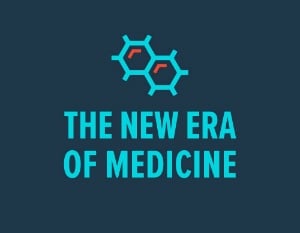Disrupting Alzheimer's
While Alzheimer's research is challenging, biopharmaceutical researchers are learning from setbacks to advance newfound treatments.

Disrupting Alzheimer's.
While Alzheimer's research is challenging, biopharmaceutical researchers are learning from setbacks to advance newfound treatments.

Disrupting Alzheimer's.
We are living in a new era of medicine, where treatments and even cures once believed to be impossible are today a reality. But this immense progress does not apply universally and there have been far more setbacks in Alzheimer's research than success. For example, between 1998 and 2017, there were 146 attempts to bring new Alzheimer’s treatments to market, but just four successful approvals. Even then, medicines approved today only treat symptoms and not the underlying cause of the disease.
 On September 12, in partnership with The Atlantic, researchers, patient advocates and policymakers who help advance drug discovery, will gather in Chicago to discuss the unique challenges which make up Alzheimer's research and what the future holds for the 5.7 million Americans living with the disease. Featured as part of the event will be Peter Anastasiou, president of Lundbeck North America. Peter will be joined on stage by Samantha Budd Haeberlein, vice president, Alzheimer’s Late Stage Clinical Development, Biogen and Johan Luthman, vice president and Head of Clinical Development, Global Neurology Business Group, Eisai.
On September 12, in partnership with The Atlantic, researchers, patient advocates and policymakers who help advance drug discovery, will gather in Chicago to discuss the unique challenges which make up Alzheimer's research and what the future holds for the 5.7 million Americans living with the disease. Featured as part of the event will be Peter Anastasiou, president of Lundbeck North America. Peter will be joined on stage by Samantha Budd Haeberlein, vice president, Alzheimer’s Late Stage Clinical Development, Biogen and Johan Luthman, vice president and Head of Clinical Development, Global Neurology Business Group, Eisai.
A week later, on September 17, a similar group will gather in Washington, D.C. to view acclaimed filmmaker and director James Keach’s The Turning Point, which follows a team of dedicated biopharmaceutical scientists on the front lines of Alzheimer’s research and captures the raw disappointment and renewed hope of those working to find a cure.
At both events, audience members will explore the uphill battle to fight the loss of the cognitive functions of the brain. Of the top 10 causes of death, Alzheimer's is the only one that cannot be prevented, cured or even slowed. Once diagnosed, the average life expectancy is seven years, during which patients go through the horrifying experience of losing their memories.
Despite setbacks in the field, progress has been made. Many researchers point out that a “failed experiment” is not the same thing as a “failure” because even when a medicine does not make it through the clinical trial process, biopharmaceutical researchers are still able to glean useful information that advance our understanding of the brain. And today there are 92 medicines in development for the treatment of Alzheimer’s disease.
This year, the results of an early trial for an experimental drug demonstrated the ability to improve cognition and reduce clinical signs of Alzheimer's in study participants. While these results far from indicate a successful treatment, they reflect progress nonetheless.
These stepping stones in research will ultimately escalate into a giant leap forward, providing hope to the millions of Alzheimer’s patients and their caregivers and loved ones.